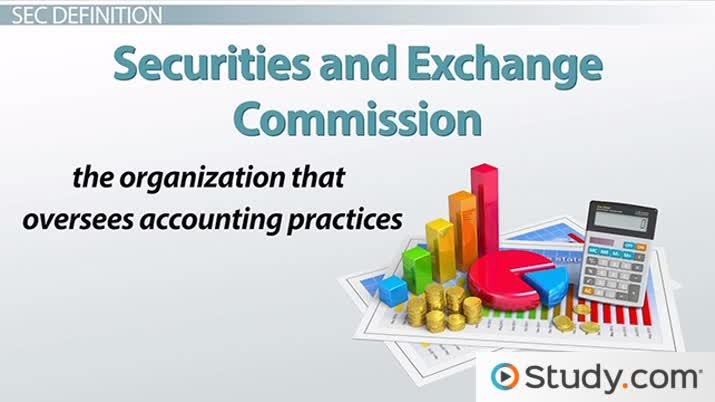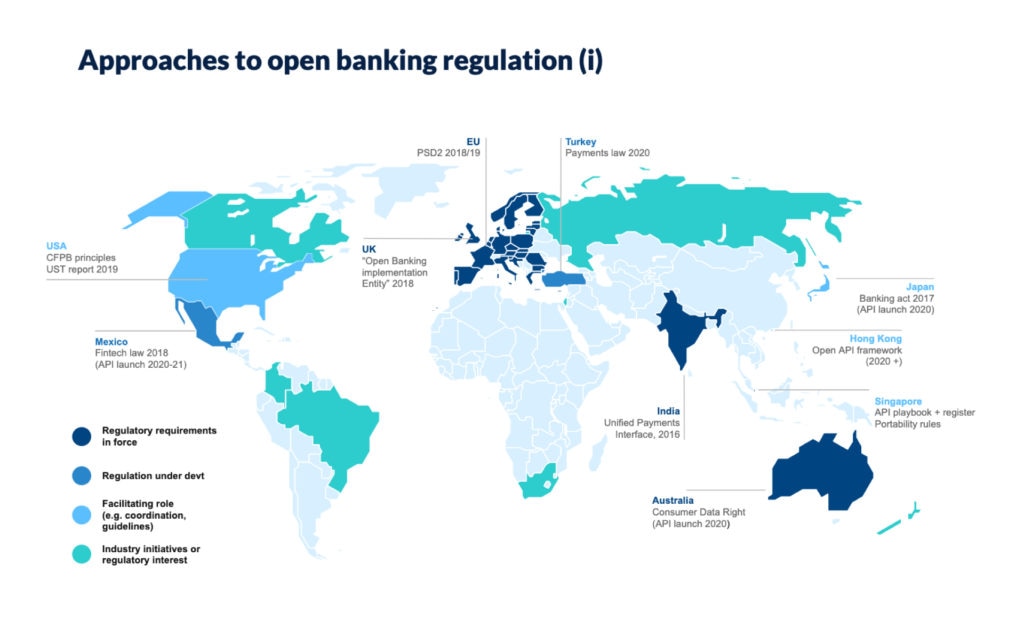
The SEC’s Shield: Protecting Investors and Building Trust in Financial Markets
Have you ever wondered who keeps an eye on the vast, complex world of stocks, bonds, and investments? Who ensures that the financial game is played fairly, and that your hard-earned money isn’t lost to scams or dishonest practices? The answer, for the United States, is the Securities and Exchange Commission (SEC).
Often referred to as the "watchdog" or "referee" of the financial markets, the SEC plays a monumental role in safeguarding investors, maintaining market integrity, and facilitating capital formation. For beginners navigating the often-intimidating landscape of investing, understanding the SEC’s function is like knowing the rules of the road before you start driving.
This comprehensive guide will demystify the SEC, breaking down its crucial responsibilities and explaining why its work is indispensable for anyone participating in the U.S. financial system.
What Exactly is the SEC? A Brief History
Imagine a time when the stock market was a bit like the "Wild West" – full of speculation, manipulation, and very little oversight. This was largely the case before the fateful year of 1929, when the stock market crashed, ushering in the Great Depression. Millions of Americans lost their life savings, trust in financial institutions plummeted, and the need for robust regulation became painfully clear.
In response to this crisis, the U.S. Congress passed the Securities Act of 1933 and the Securities Exchange Act of 1934. These landmark laws created the Securities and Exchange Commission (SEC), a federal agency tasked with bringing order and transparency to the financial markets.
The SEC’s primary mission, established at its inception, is threefold:
- Protect investors: Ensure that individuals who invest their money are treated fairly and have access to the information they need to make informed decisions.
- Maintain fair, orderly, and efficient markets: Keep the playing field level for all participants and ensure that trading operates smoothly and transparently.
- Facilitate capital formation: Enable companies to raise money efficiently from investors, which is crucial for economic growth and job creation.
Think of the SEC as the impartial umpire in a giant, fast-paced baseball game. Without the umpire, there would be chaos, cheating, and no trust in the outcome. The SEC provides that essential structure and oversight for the financial markets.
The Core Pillars: Key Roles of the SEC
The SEC’s mission translates into several vital functions that touch nearly every aspect of the U.S. financial system. Let’s explore these core responsibilities:
1. Protecting Investors: Your Financial Shield
This is arguably the most recognized and critical role of the SEC. Investor protection means ensuring that individuals, from seasoned traders to first-time savers, are not victims of fraud, manipulation, or misleading information.
How the SEC Protects You:
- Combating Fraud and Deception: The SEC actively investigates and prosecutes individuals and companies involved in financial scams, Ponzi schemes, insider trading, and other deceptive practices. Their enforcement actions send a strong message that such behavior will not be tolerated.
- Ensuring Disclosure and Transparency: One of the SEC’s foundational principles is that investors should have access to all material information before making investment decisions. This means requiring public companies to regularly disclose their financial health, business operations, risks, and other relevant details.
- Regulating Investment Professionals: The SEC oversees brokers, investment advisers, and other financial professionals to ensure they act in the best interest of their clients and adhere to ethical standards.
- Providing Investor Education: The SEC offers a wealth of resources, tools, and information to help investors understand the markets, identify risks, and make informed choices. This includes warnings about common scams and advice on managing personal finances.
Example: If a company lies about its profits to inflate its stock price, the SEC can step in, investigate, fine the company, and even press charges against the executives involved, aiming to recover money for defrauded investors.
2. Maintaining Fair, Orderly, and Efficient Markets: The Level Playing Field
Beyond protecting individual investors, the SEC is responsible for the overall health and functionality of the markets themselves. Fair, orderly, and efficient markets benefit everyone – investors, companies, and the economy as a whole.
What This Means in Practice:
- Fairness: All investors, regardless of their size or influence, should have equal access to information and opportunities. The SEC works to prevent market manipulation, such as "pump and dump" schemes (where fraudsters artificially inflate a stock’s price before selling off their shares) or insider trading (using non-public information for personal gain).
- Orderliness: The markets should operate smoothly and predictably. This involves setting rules for how trades are executed, how prices are determined, and how market disruptions are managed.
- Efficiency: Investors should be able to buy and sell securities quickly and at fair prices, reflecting all available public information. The SEC promotes technological advancements and competitive practices that enhance market efficiency.
How the SEC Ensures Market Integrity:
- Oversight of Exchanges: The SEC supervises stock exchanges (like the New York Stock Exchange and Nasdaq) and other self-regulatory organizations (SROs) like FINRA, ensuring they operate fairly and enforce their own rules.
- Market Surveillance: The SEC monitors trading activity for unusual patterns that might indicate illegal or manipulative behavior.
- Rulemaking: The SEC continually updates and creates rules to adapt to new financial products, technologies, and market practices, ensuring regulations keep pace with innovation while maintaining investor protection.
Example: The SEC’s rules prevent a single large investor from cornering the market on a particular stock, ensuring that prices are determined by genuine supply and demand, not artificial manipulation.
3. Facilitating Capital Formation: Fueling Economic Growth
While investor protection and market integrity are paramount, the SEC also plays a crucial role in enabling companies to raise the money they need to grow, innovate, and create jobs. This process is called capital formation.
Why This Role is Important:
- Trust Attracts Investment: When investors trust the markets and believe their money is safe, they are more willing to invest. This willingness to invest provides companies with the capital they need to expand operations, develop new products, hire employees, and contribute to the overall economy.
- Streamlining the Process: The SEC creates a framework that allows companies to go public (issue shares on a stock exchange) or raise private capital in an organized and regulated manner. This reduces uncertainty and risk for both the company seeking capital and the investors providing it.
- Balancing Act: The SEC constantly balances its protection mandate with the need to avoid overly burdensome regulations that could stifle innovation or make it too difficult for businesses to raise money. They aim for a regulatory environment that fosters both confidence and growth.
How the SEC Supports Capital Formation:
- Registration Requirements: Companies wanting to sell securities to the public must register with the SEC, providing detailed information that helps investors make informed decisions. This process, while rigorous, builds investor confidence.
- Exemptions for Smaller Businesses: The SEC provides various exemptions from full registration requirements for smaller businesses or specific types of offerings, making it easier for them to raise capital without excessive regulatory burden, while still maintaining appropriate investor safeguards.
- Promoting Market Liquidity: By ensuring fair and efficient markets, the SEC helps ensure that investors can buy and sell securities when they need to, which makes investing more attractive and liquid, thus encouraging more capital to flow into the markets.
Example: A promising tech startup might need millions of dollars to develop its product. By going public and registering with the SEC, it can access a vast pool of investors who are confident that the company’s disclosures are legitimate and that the market they’re entering is regulated.
How the SEC Achieves Its Goals: Tools and Powers
The SEC isn’t just a passive observer; it’s an active enforcement body with a range of tools and powers to fulfill its mission.
1. Establishing Rules and Regulations (Rulemaking)
The SEC has the authority to create and enforce rules that govern the securities industry. These rules are derived from federal securities laws and are constantly updated to address new challenges and technologies.
- Examples of Key Rules:
- Disclosure Requirements: Rules dictating what information public companies must provide to investors (e.g., annual reports (10-K), quarterly reports (10-Q), current reports (8-K) for significant events).
- Trading Rules: Regulations governing how securities are bought and sold, aimed at preventing manipulation and ensuring fair pricing.
- Professional Conduct: Rules for brokers, investment advisors, and mutual funds, ensuring they act ethically and in their clients’ best interests.
2. Ensuring Disclosure and Transparency
Transparency is the bedrock of investor protection. The SEC mandates that companies provide comprehensive and accurate information to the public.
- Public Filings: Companies that want to sell stock to the public must file detailed registration statements with the SEC. Once public, they must file regular reports (like the 10-K and 10-Q) that are available for anyone to review on the SEC’s EDGAR database.
- What’s Disclosed: These filings contain crucial information about a company’s financial performance, business operations, management, risk factors, legal proceedings, and more. This empowers investors to conduct their "due diligence" (research) before investing.
3. Enforcing Securities Laws (Enforcement)
When rules are broken, the SEC steps in. Its Enforcement Division investigates potential violations of securities laws and brings civil (non-criminal) actions against individuals and companies.
- Common Violations Investigated:
- Insider Trading: Using confidential, non-public information to make personal stock trading profits.
- Market Manipulation: Artificially influencing stock prices.
- Accounting Fraud: Misrepresenting a company’s financial health.
- Ponzi Schemes: Fraudulent investment operations that pay returns to investors from their own money or money paid by subsequent investors, rather than from actual profit.
- Misleading Disclosures: Providing false or incomplete information in public filings or statements.
- Consequences of Violations: The SEC can impose significant penalties, including:
- Fines: Monetary penalties.
- Disgorgement: Forcing wrongdoers to give up ill-gotten gains.
- Cease-and-Desist Orders: Ordering individuals or companies to stop illegal activities.
- Bars from the Industry: Preventing individuals from working in the securities industry.
- Referrals for Criminal Prosecution: While the SEC is a civil agency, it often works with the Department of Justice to bring criminal charges in severe cases.
4. Overseeing Market Participants
The SEC directly supervises a wide range of entities within the financial ecosystem.
- Stock Exchanges: Ensures that exchanges operate fairly and have robust systems to handle trading.
- Broker-Dealers: Firms that buy and sell securities for customers or for their own accounts. The SEC ensures they adhere to rules designed to protect clients.
- Investment Advisers: Professionals who provide investment advice for a fee. The SEC regulates them to ensure they act as fiduciaries (meaning they must act in their clients’ best interest).
- Mutual Funds and ETFs: These popular investment vehicles are also subject to SEC oversight, ensuring transparency and proper management.
5. Investor Education and Advocacy
A well-informed investor is the first line of defense against fraud. The SEC actively educates the public about investing risks, rights, and responsibilities.
- Investor.gov: The SEC’s dedicated website for investors, offering free tools, alerts, and educational materials.
- Public Outreach: Issuing press releases, investor alerts, and participating in public awareness campaigns.
- Fraud Prevention: Warning investors about current scams and providing tips on how to avoid them.
Why the SEC Matters to YOU
Even if you’re not a professional investor or a financial expert, the SEC’s work directly impacts your financial well-being.
- Your Retirement Savings: If you have a 401(k), IRA, or any other retirement account invested in stocks or mutual funds, the SEC’s oversight helps ensure that the companies you’re investing in are legitimate and that the markets you’re participating in are fair.
- Building Trust: The very existence of the SEC fosters trust in the financial system. Without it, many people would be hesitant to invest, leading to less capital for businesses and a less dynamic economy.
- Economic Stability: By maintaining orderly markets and preventing widespread fraud, the SEC contributes to the overall stability of the U.S. economy.
- Access to Information: The SEC’s disclosure requirements mean you have access to a wealth of information about public companies, allowing you to make more informed investment choices.
Challenges and the Future of the SEC
The financial world is constantly evolving, presenting new challenges for the SEC.
- Technological Advancements: The rise of cryptocurrencies, decentralized finance (DeFi), artificial intelligence in trading, and robo-advisors introduces complex regulatory questions.
- Globalization: Financial markets are increasingly interconnected, requiring international cooperation to combat fraud and ensure consistent regulation.
- Cybersecurity: Protecting sensitive financial data and market infrastructure from cyber threats is a growing concern.
- Data Overload: The sheer volume of financial data and public filings can be overwhelming, requiring sophisticated tools and strategies for analysis.
Despite these challenges, the SEC remains committed to adapting its rules and enforcement strategies to protect investors and maintain market integrity in a rapidly changing landscape.
Conclusion: The Unsung Hero of Your Investments
The Securities and Exchange Commission is more than just a government agency; it is a fundamental pillar of the U.S. financial system. By acting as the vigilant watchdog, enforcing critical rules, and promoting transparency, the SEC safeguards the interests of millions of investors, fosters trust in the markets, and ultimately helps fuel economic growth.
For anyone looking to navigate the world of investing, understanding the SEC’s role is not just academic; it’s empowering. It means knowing that there’s a dedicated body working to ensure fairness, protect your investments, and maintain the integrity of the financial playground where your future savings are built. The SEC is truly the unsung hero that allows you to invest with greater confidence.
:max_bytes(150000):strip_icc()/SEC-V2-eda00ed16db04b2588bc4db64da421c1.jpg)


Post Comment